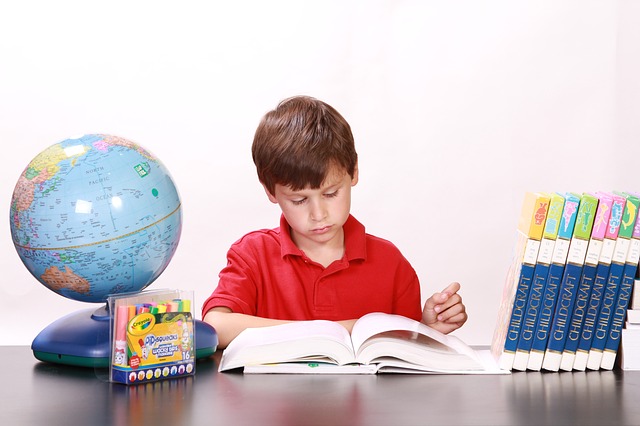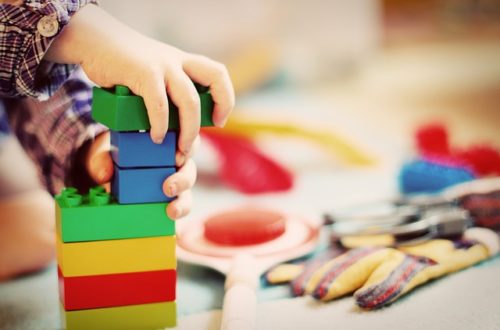The Time to Start Reading to Your Child Is Now

If you were a young reader yourself, you might already understand the value of learning to read sooner rather than later — but if you aren’t, on the other hand, you might be unaware of what kind of benefits your kids can gain the sooner you start reading to them. This is different than the type of reading you do when you scroll through Facebook or Twitter; this is the type of imaginative reading that takes you on a journey!
It All Starts With the Picture Book
Children of any age can start building healthy reading habits with simple picture and board books. However, the younger your child, the better off they are — which is exactly why you need to start now!
Children from 0-6 months of age are still just learning to recognize visual shapes and colors, which is why most picture books tend to be vibrant with bold shapes, usually set against white backgrounds. Eventually children will begin to associate pictures with the words you are reading to them. As time goes on, they’ll learn to read the book back to you, at first simply via parroting and imitating, but eventually via symbolic recognition.
Another reason that picture books are a great place to start, even for children who are a little older, is that they have naturally have a toned down vocabulary or use simple words and phrases. Think about Dr. Seuss books: they provide big pictures to connect to, teach rhyming, and rely on a basic vocabulary the child can master and recall when reading more advanced books later.
The name of the game here is “gradual introduction.” You obviously can’t just hand your child a chapter book and expect them to be able to read it. Be patient, and have fun! Kids will latch on to anything they are entertained by, so pick books that they want to read.
There Is a Reaction
No matter the age of your child, there is one thing you always gain from reading to your kid: a reaction. Even with toddlers, after a few minutes of reading an interesting story, you’ll start to notice waving of excited arms, mimicry of your voice, and questions about the content you’re both diving into.
These reactions are good signs that your child’s mind is really marinating on whatever you’re reading together. These can lead to increased critical thinking skills as they try to figure out how parts of a story happened, and can even lead to empathy as they criticize a character’s actions.
Exercises in imagination early on sets the stage for strong problem solving skills and increased creativity later on. To that end, here’s a list of a couple of books that will spark your child’s imagination.
Set the Stage for Soft and Hard Skills
Speaking of imagination and empathy, reading early on is just one way that children can begin learning to put themselves in other people’s shoes. This isn’t just some hippy-dippy mumbo jumbo — Penelope Adams Moon, a clinical professor and graduate programs director uses history as an example when talking about why different interpretations of the same subject matter do indeed matter:
“In high school and to some extent in college, students have the impression that history is about the facts,” Moon said. “But really, historians are themselves embedded. Who they are and when they’re writing shapes the questions they ask and informs their interpretation of evidence. It matters if a historian was looking at the same matter is writing in the 1920s versus the 1960s.”
Soft skills aside, hard skill acquisition begins with reading young as well. According to UNICEF, the first three to five years of a child’s life are the most important when it comes to development and success. This is why you shouldn’t wait for preschool or kindergarten to expose your child to reading.
Embrace Bonding Time
Even if you don’t think your child will get anything else out of reading to them, at the very least you’re taking time to bond with them. Setting aside the time to read to your kids creates moments in which they can connect with you.
As mentioned before, take time and care selecting books that your children will enjoy. Go out of your way to search for and find specific books, and if you can, try to read paper-based books. There are studies that show people learn more when they read from paper-based books.
In the end if you really care about your child’s literacy, critical thinking skills, and even ability to walk in other people’s shoes, you’ll start reading to them ASAP. The time to start reading to your child truly is today.
Would you like to receive similar articles by email?





